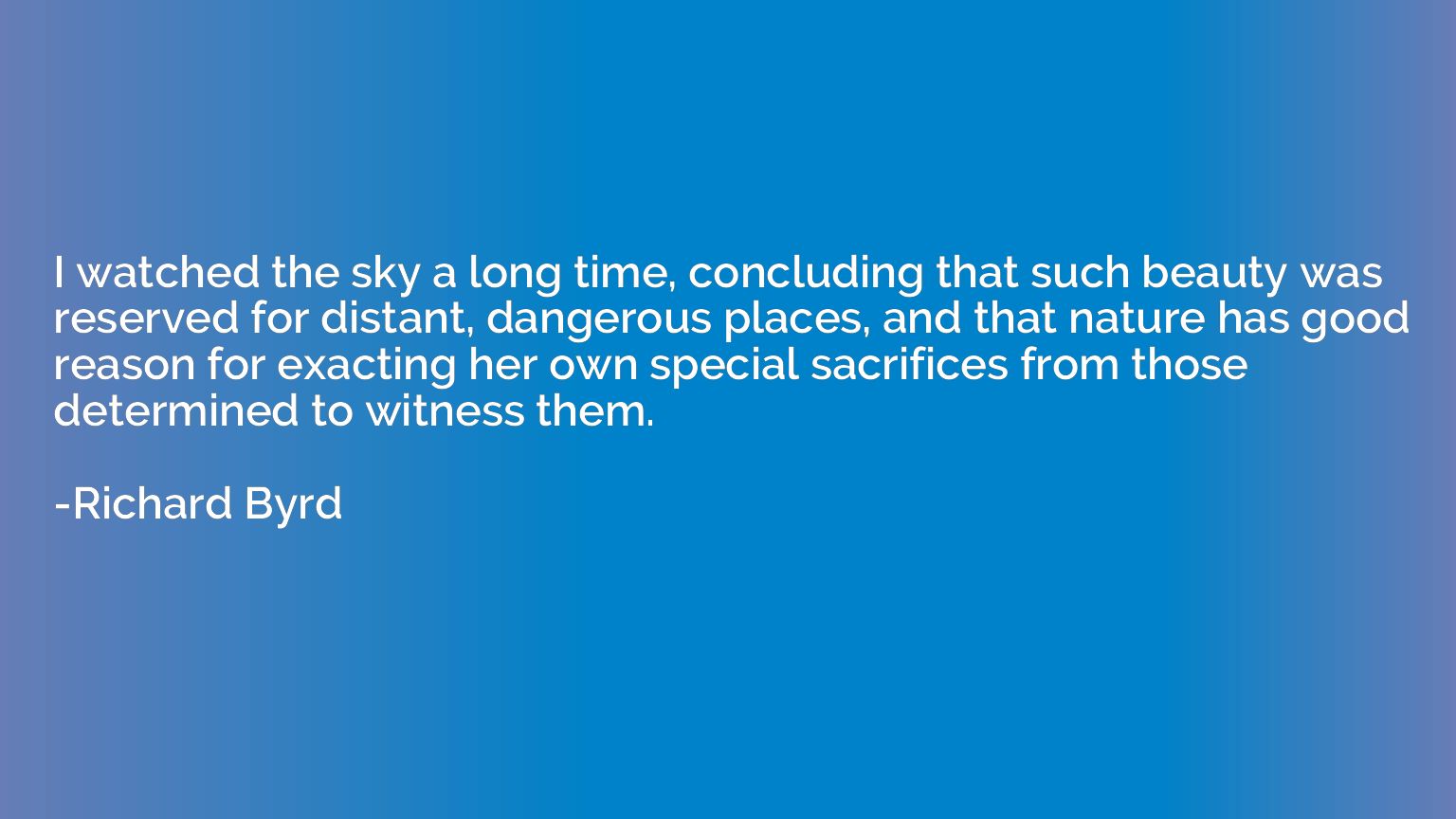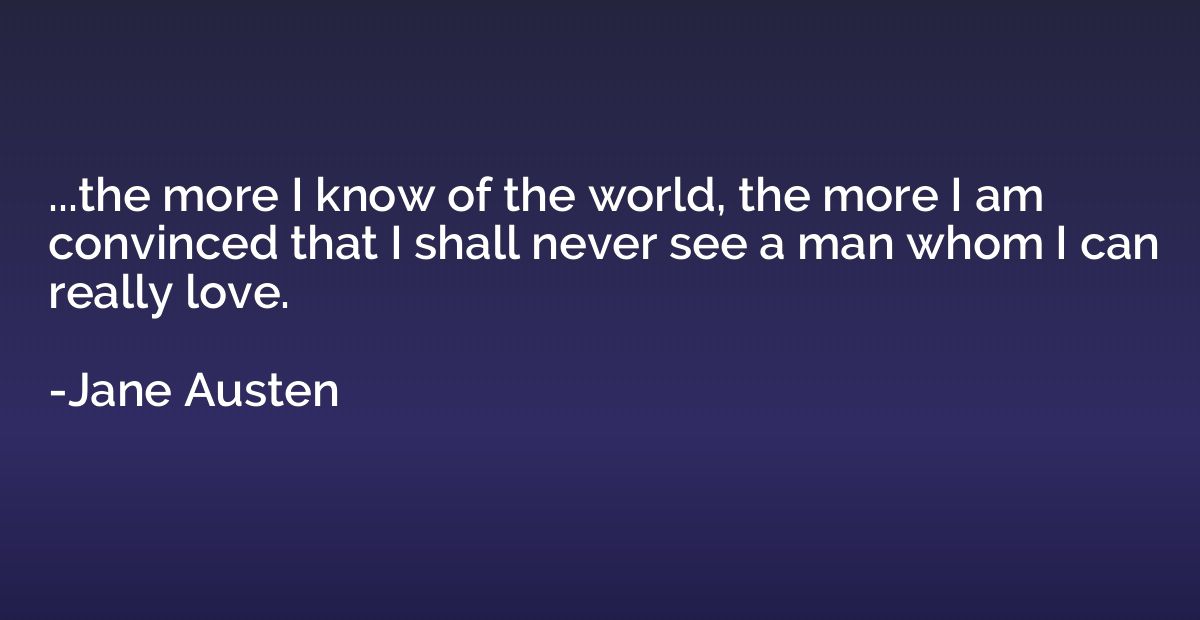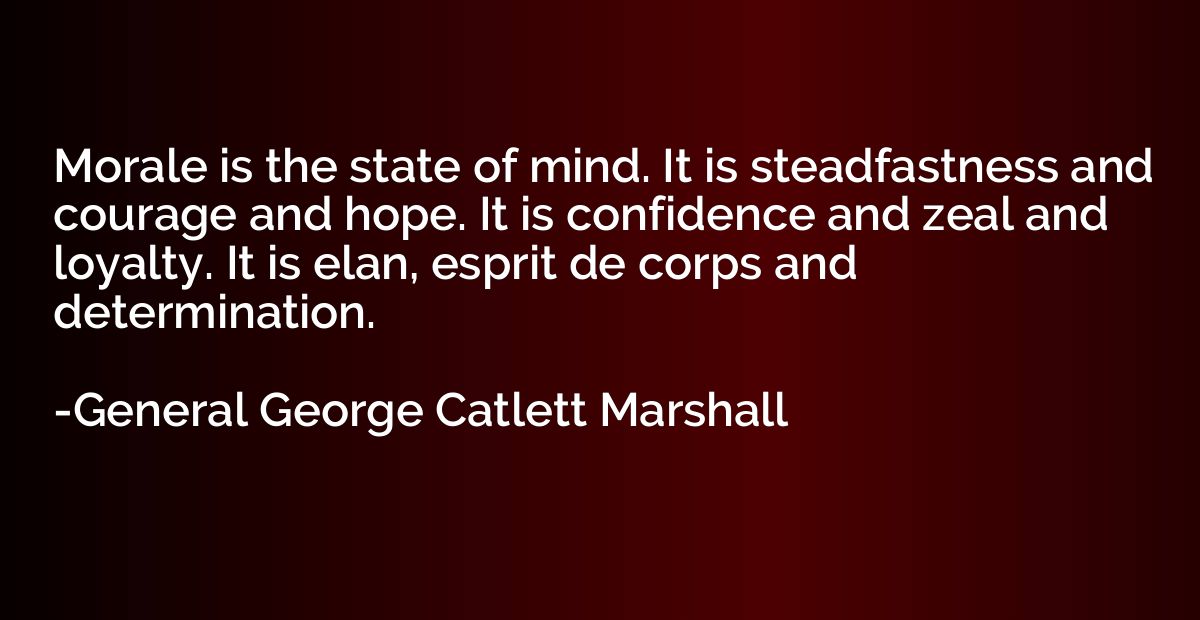Quote by Richard Byrd
I watched the sky a long time, concluding that such beauty was reserved for distant, dangerous places, and that nature has good reason for exacting her own special sacrifices from those determined to witness them.

Summary
This quote suggests that the speaker has been captivated by the beauty of the sky. The phrase "reserved for distant, dangerous places" implies that experiencing such awe-inspiring sights often requires taking risks or venturing outside one's comfort zone. The speaker further reflects that nature demands sacrifices from those who are determined to witness its wonders, indicating that true appreciation and understanding of nature's beauty come at a cost. It conveys the idea that the most extraordinary and breathtaking experiences in life often come with challenges and sacrifices.
By Richard Byrd














